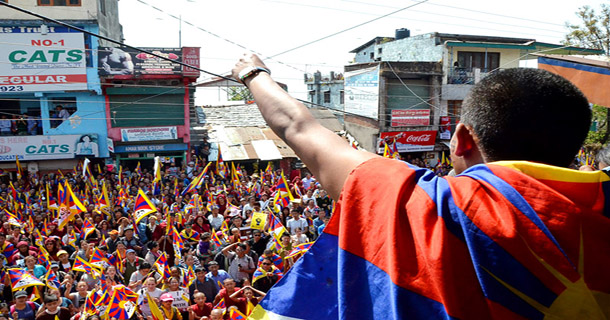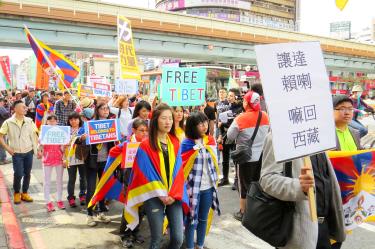Tibetan supporters around the world marked Tibetan National Uprising Day on March 10, with protest rallies in major cities both a call for renewed attention to the human rights violations in Tibet, and a mark of solidarity with the cause of Tibetan freedom.
Events organised by official pro-Tibetan groups such as Students for a Free Tibet and Tibetan Youth Congress were held at Chinese embassies in London, Delhi, San Francisco, New York, Nepal, Hyderabad, Ottowa, Burlington, Vermont, Czech Republic, Brazil. Independent rallies were also organised by Tibetan communities in smaller cities.
The majority of events featured commemorations for Tibetans who have self-immolated since 1959, with the self-immolations of Tibetan teenagers Kelsang Wangdu and Dorjee Tsering in late February used to highlight the ongoing importance of the Tibetan freedom movement.
In Taipei, Democratic Progressive Party legislator Tsai Yi-Yu used a 200 person rally to state that China’s relationship with Tibet should be viewed as a warning of Taiwan’s own precarious position with their neighbour China.
Yi-yu spoke for Tibetan solidarity based on the fact that Tibet and Taiwan are “both originally independent nations, but have been losing our political systems, social structures, religious beliefs and languages ever since colonising powers came”.
Whilst the majority of National Uprising Day events were peaceful, 220 Tibetan Youth Congress activists were arrested by the Chanakyapuri police in New Delhi after they attempted to enter the Chinese Embassy. According to social media accounts, riot police detained the majority for a few hours.
Sikyong Lobsang Sangay, the elected leader of the Tibetan Government-in-Exile, spoke at the Uprising Day rally in Tsugla-Khang, the main temple in Dharamshala, issuing a statement thanking Tibetan supporters around the world for their ongoing efforts.
“The Kashag would like to take this opportunity to remember the kindness of the leaders of various nations that cherish justice, parliamentarians, intellectuals, scholars, human rights organisations and Tibet Support Groups, who have been steadfast in their support for the Tibetan people. In particular, we will always remember the kindness and consistent support of the people and government of India and state governments for generously helping us preserve and promote our religion and culture and ensuring the welfare of the Tibetan people in exile.”






 Print
Print Email
Email